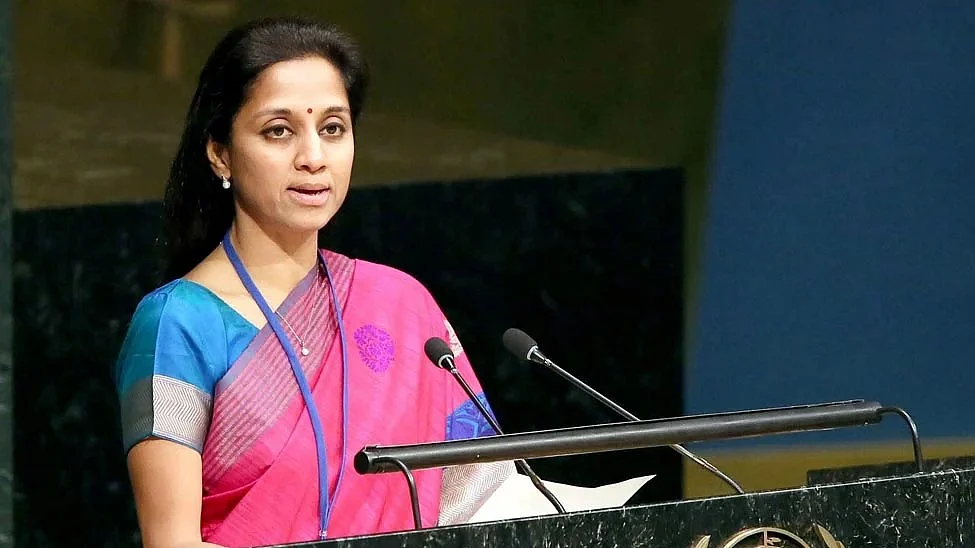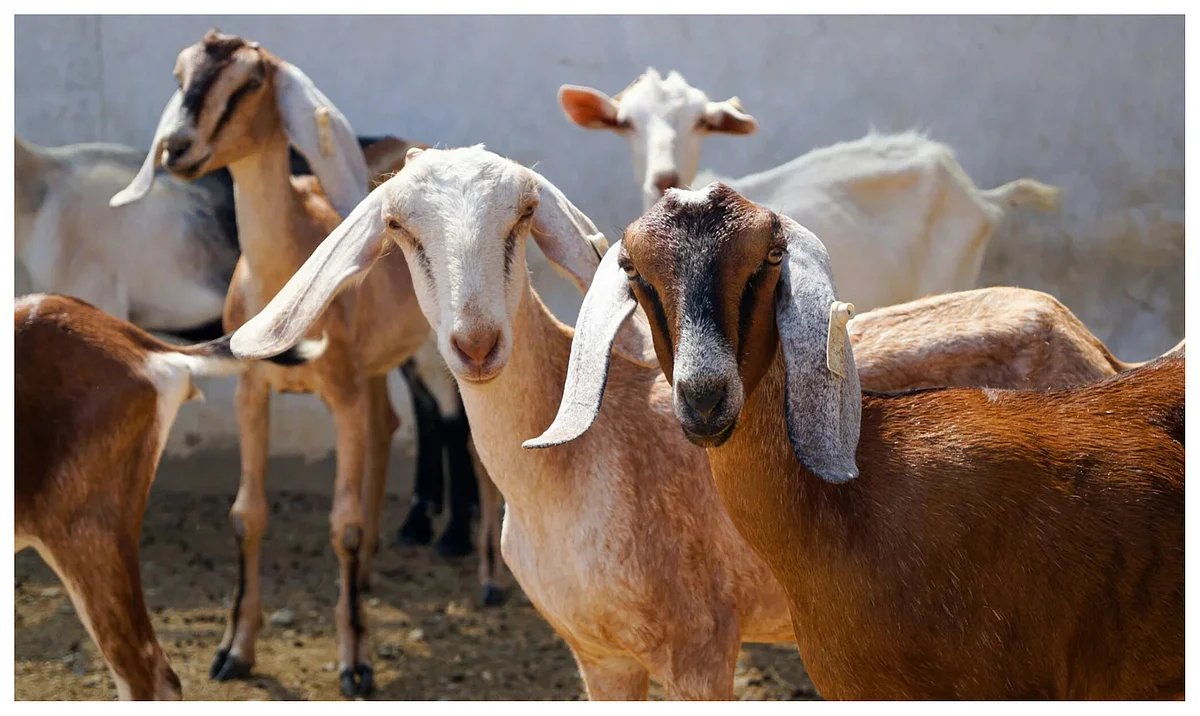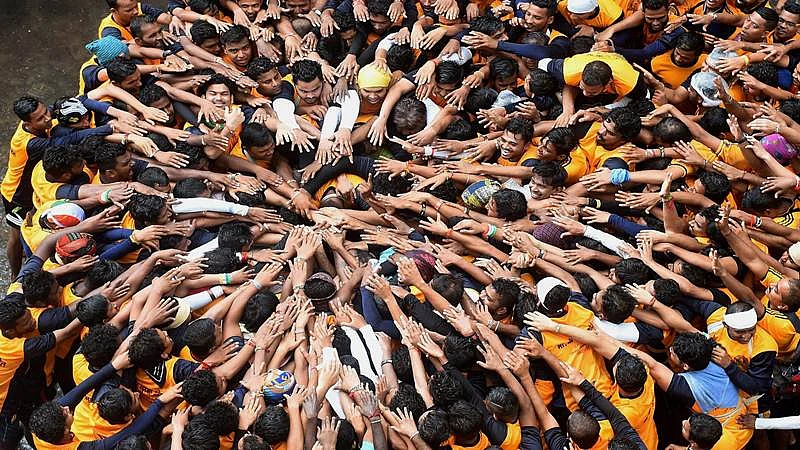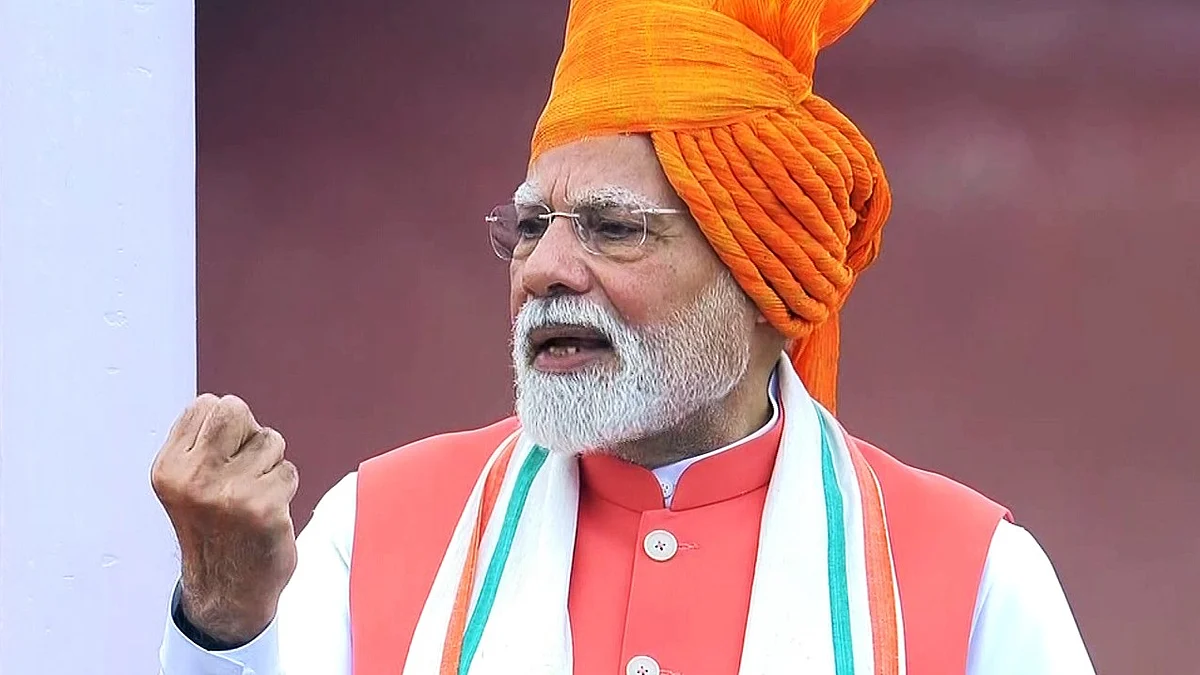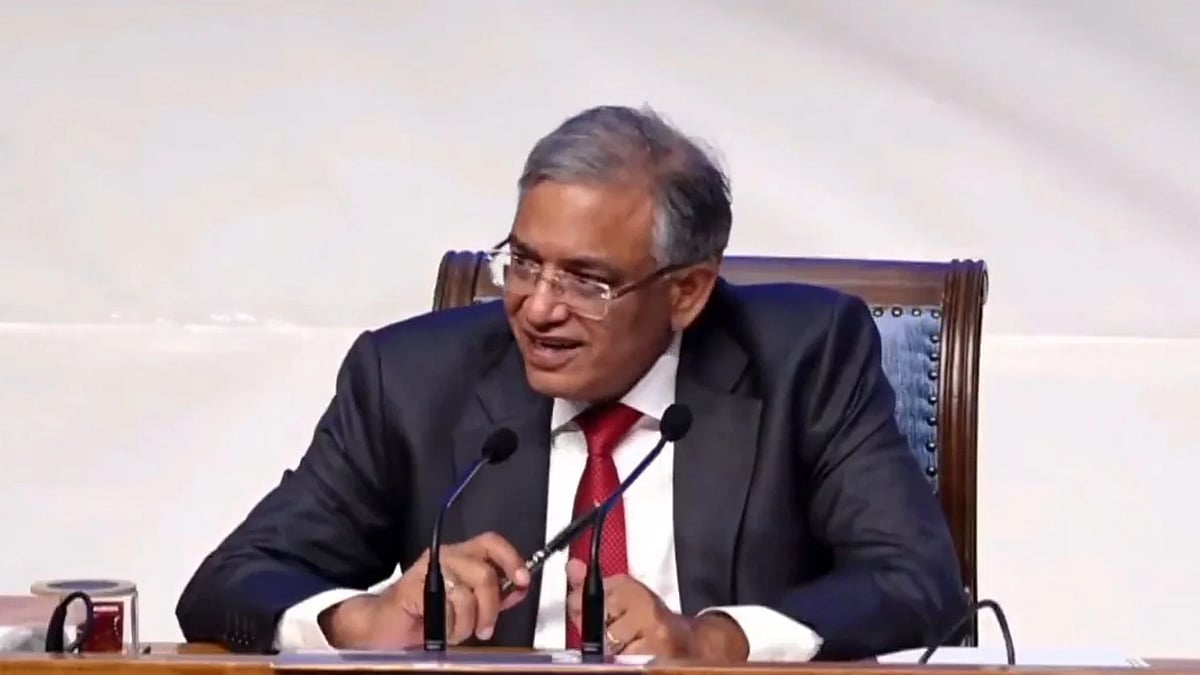Karnataka’s hijab row,which has found reverberations in Pakistan and prompted Asaduddin Owaisi to tell that country to mind its own business - tests if India is secular or a Hindu majoritarian state.
The Karnataka high court has already setup a three-judge Constitution bench headed by the chief justice to examine the judgments pronounced by the Supreme Court on Article 25 to 27 on what constitutes essential practices of the Islamic faith linked to the Karnataka Education Act, 1983,and the Right to Education Act, 2009.
The hijab row has spread from Udupi to Bagalkot, Vijayapura, Mandya and Shivamogga in Karnataka, prompting the opposition MPs to walk out from Lok Sabha to demand the government make its stand clear.
For, the Karnataka Education Act, 1983, is subsumed by the Right to Education Act, 2009, which in turn, is subsumed by Articles 25 to 27 of the Constitution which permits restrictions of health, public order and morality on the citizens’ right to practise, profess and propagate any religion.
The right to wear a hijab will determine whether minorities are really free to profess and practise their own religion. Muslim girls must defy gender stereotypes to get an education by escaping ghettoisation to build their careers. After the oil boom collapse in the Gulf countries, Muslims have been deprived of quality education because their madrassas fuel the stereotypes of being sectarian seminaries where religious indoctrination overrides vocational training.
Orthodox parents may force their daughters to wear the hijab outside their homes, which is their fundamental right. So, invoking section 133 (2) of the Karnataka Education Act, 1983 to prevent these Muslim girls from entering classrooms will thwart their education. Priyanka Gandhi’s assertion that women have the right to decide whether to wear a bikini or a hijab may be anathema to a majoritarian-turned-authoritarian government accused of using Pegasus to snoop on us.
What constitutes an essential part of a religious practice must be ascertained with reference to the doctrines of that religion itself, the Supreme Court held in the 1954 Shirur Mutt case which ironically also originated in Udupi where the hijab row began. But legal scholars criticise this crucial test because in general, judges are not theological experts.
Every religion has its own unique symbols –be ittheSikhturban,the Muslimburqa,the Christian cross, the Hindu tika on the forehead or the Parsi sadra.
And every Indian has the right to wear it proudly, subject to health, public order and morality. The right to practise one’s religion is a negative right, which means the state cannot enact laws to nullify this right. The successive judgments of the Supreme Court have whittled down secularism as the founding fathers envisaged it.
Today,the government propagates that its version of secularism is to treat all religions equally. But if we believe that, we are living in a delusional world. Most of the laws enacted from 2014 favour a certain community – never mind what the Constitution declares. In a 2004 ruling,the Supreme Court held the Ananda Marga sect had no fundamental right to perform the tandava dance in public because it was not an essential religious practice whereas in 2016, a three-judge bench of the Supreme Court upheld the discharge of a Muslim air man from the Indian Air Force for keeping a beard.
The IAF airman was discharged because keeping a beard did not constitute an essential religious practice in Islam as distinguished from Sikhism, which enjoins its followers to grow theirhair. Using the same logic, wearing of a hijab is also not an essential religious practice of Islam. The right to profess,practise and propagate any religion of your choice subject to decency, public order and morality has become a chimera because laws enacted by a Hindu majoritarian state have prohibited beef, raised the marriageable age of girls to 21 years and made it compulsory to declare before a magistrate that one is changing one’s religion to avoid charges of love jihad – of which there was no data, according to the government’s own admission.
So, now banning the hijab may be viewed with suspicion because although it is not an essential religious practice, it is part of customary law. The Quran enjoins all Muslim women to be submissive to men who are their guardians and protectors,which implies Karnataka cannot ban Muslim women from wearing the hijab.
The counter to that is the last major judgment of the Supreme Court in 2017, known as Shayra Bano versus Union of India, recognised the state could enact laws regulating or restricting any economic, financial, political or other secular activity linked to pernicious religious practices.
But the five-judge Constitution bench recorded the founding fathers’ arguments against the state interfering in religious customs by enacting a uniform civil code to homogenise laws of inheritance, marriage and divorce. Any citizen could take the state to court because such laws were justiciable if they restricted fundamental rights.
The right to wear a piece of cloth, whether it is an essential religious practice or not, is part of the right to privacy, which like the Shayra Bano case, was also validated by the Supreme Court in 2017.
Senior advocate Devadutt Kamath argued in the Karnataka high court that the state did not have the power to ban the hijab. The state can enact laws to curtail fundamental rights such as freedom of speech and expression, the right to choose your attire and the twin rights of religious freedom, which is part of the right to privacy.
But these laws will become justiciable because it is ultimately the courts which must decide what is part of an essential religious practice. Politicians can ban the hijab to inflame religious sentiments. For, politics and law are instruments of oppression and compromise. Faith is not.
(The writer holds a PhD in law and is a senior journalist-cum-advocate of the Bombay high court)

